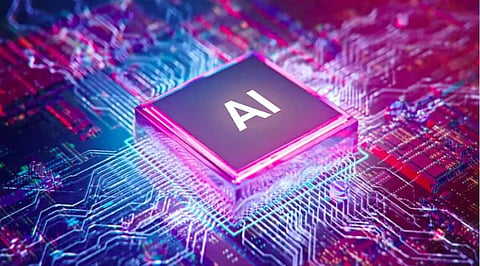

Controlling elevators with voice commands, cameras that notify stores when to restock, video streams that keep a tab on parking space availability are some of the many things that are now possible, thanks to artificial intelligence and computing on the edge, via Azure Percept.
Announced at the virtual Microsoft Ignite event, Azure Percept can turn these scenarios into reality by combining artificial intelligence capabilities like voice recognition and image classification to edge devices, without the need for constant access to the cloud.
As told at the event, Azure percept is a platform of hardware and services that will simplify the way consumers can use Azure AI technology. Corporate vice president of Microsoft's edge and platform group, Roanne Sones said that the goal of this new offering is to give customers a single end-to-end system, ranging from the hardware to the AI capabilities that "just works" without having all the technical skills.
This new platform comes with a development kit that includes an intelligence camera, called the Azure Percept Vision. There is also a "getting started" experience called Azure Percept Studio that will act as a guide for customers who have little to almost no coding expertise and take them through the entire AI lifecycle.
There's also Azure Percept Audio which is a hardware-accelerated AI module that facilitates speech and vision AI when the device is not connected to the internet. It can make lightning-fast calculations without the need for cloud connectivity. This will come in handy in places where the internet connection is glitchy like on factory floors.
In addition to this, the company is working with third-party silicon and equipment manufacturers to create an ecosystem of intelligent devices that are made to run on the Azure platform. "We've started with the two most common AI workloads, vision and voice, sight and sounds, and we've given out the blueprint so that manufacturers can take the basics of what we've started", said Sones.
Not limited to artificial intelligence, Microsoft is focusing on other platforms too like Azure Machine Learning service for developers to build and deploy AI models from the Azure Cloud. This service has several capabilities like the new integration with the Azure Synapse Analytics service.
Azure Synapse Analytics combines data integration, enterprise data warehousing and big data analysis in one service. This integration facilitates exploring, preparing, managing, and serving data for immediate business intelligence and machine learning needs. Developers and data science teams can use Azure Synapse Analytics Spark clusters to enable interactive data preparation on a large scale with the Azure Machine Learning notebooks, says Microsoft.
In addition to that, Azure Machine Learning is now a part of the Azure Arc that makes it possible to run Azure services in any Kubernetes environment, which according to the general manager of Microsoft Azure Arpan Shah, will extend the company's machine learning abilities to any hybrid or multicloud environment. "Customers can run training models where the data lives while leveraging existing infrastructure investments. This reduces data movement and network latency, while meeting security and compliance requirements".
The main focus for Azure is enhancing "data agility" as data and AI are connected. Adding to this, Microsoft said that it is helping customers migrate to the Azure Synaptics Analytics service easily with a new tool called Azure Synapse Pathway. This new tool allows users to scan their source systems which will automatically translate existing scripts into Transact-SQL, an extension to the SQL that's used to interact with relational databases. So now users can transfer data from warehouses like Teradata, Snowflake, and Amazon Redshift to the Synapse service, quickly.
In the process of stepping up their AI game, Azure users will get some AI-enabled tools to search their data. Through an update to Azure Cognitive Search it offers built in AI capabilities to enrich all kinds of data. Users can easily identify and explore relevant content within stand alone applications. It will also get new "semantic search" capabilities that will facilitate a more relevant contextual search experience.
Join our WhatsApp Channel to get the latest news, exclusives and videos on WhatsApp
_____________
Disclaimer: Analytics Insight does not provide financial advice or guidance. Also note that the cryptocurrencies mentioned/listed on the website could potentially be scams, i.e. designed to induce you to invest financial resources that may be lost forever and not be recoverable once investments are made. You are responsible for conducting your own research (DYOR) before making any investments. Read more here.
